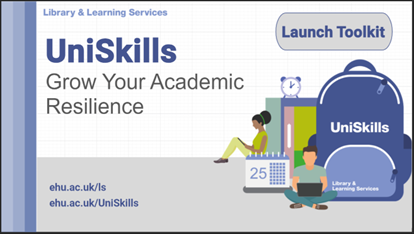Many students (and tutors!) have a love/hate relationship with feedback. Whatever your thoughts and feelings about feedback are, remember that using it proactively can be a really valuable tool to help you build your skills and confidence. Focusing on gathering and evaluating past feedback before the next assessment period is a useful way to help you identify key strengths, and also to know what you need to work on to improve or maintain your grades. Here are some of my top tips to help you get started.

Gather your feedback
Whatever year of study you are in, by this point in the academic year you will have received some feedback on previous pieces of assessment. Take some time to look back at your submissions so far, and gather all the feedback from your previous assessments. If you are in year 2, 3 or 4 of your study, you should now have a good range of feedback to consider.
Highlight the positives
Work through your feedback, highlighting all the positive comments and notice what you have done well. Have you thoroughly met the Learning Outcomes? Did you do a good job of writing critically? Have you articulated your arguments well?
Remember that feedback is often focused on ways to improve, so if there are no explicit comments about what you have done well, you can still identify positives by concentrating on what has not been said! If there are no comments in the feedback about your referencing and in-text citations, this likely means that you have already done a good job.

Focussing on the positives is a great way to build confidence and to recognise the skills you already have. Another way to do this is to identify your progress.
This is easier to do the more feedback you have, so if you are in year 1 maybe think about how you can identify and track your progress as you move into your year 2.
Track your progress
Think about any initial comments you received on improving your work that are no longer being highlighted. Have you improved your understanding of the referencing system you use, so your tutor no longer needs to comment in their feedback? Perhaps you once received feedback about the lack of structure in your work, that you are no longer finding comes up in current feedback. Identifying the progress you have already made is a great way to see how far you have come, as well as increasing confidence in your ability to improve in any other areas that you still want to tackle.
Identify recurring themes
Work through each piece of feedback and pick out any overarching themes that still need work. For example, you might notice that referencing errors have been frequently highlighted in your work. Or you may find that there are several comments which stress the need for you to develop an idea or argument.
Any elements that are regularly being raised are ones that you should be working on, and identifying the main concerns gives you a focus. Keeping track of comments from all your assignments, will help you to develop targets to work towards.

Tackling feedback can sometimes be an emotional experience, especially if you did not do as well as you had anticipated, or had hoped. Find out more about developing your feedback resilience in our UniSkills Grow Your Academic Resilience Toolkit.
Make a plan
Once you have identified any key recurring themes from your feedback you can be proactive by deciding how to tackle them. Pick the most commonly occurring theme or themes to focus on (a maximum of 3, as any more can feel overwhelming!) and think about how you will tackle them. For each theme it is useful to think about the following elements:
- What do you need to tackle?
- When will you do this?
- What support might you need?
Breaking down the steps in this way can give you a clear plan, with actionable goals, and a timeframe in which to tackle each theme. Our UniSkills Feedback Plan offers an example of how this might look. Planning in this manner means that you are more likely to act upon your feedback. An even better way to ensure that you are being proactive with your feedback is to make yourself accountable. You can do this by making your feedback plan visible (e.g., stick it to your fridge or cupboard door), or by telling someone what you plan to do.
TOP TIP: It is always important to read your feedback, however the most effective way to develop your skills is to think about how you will then act upon your feedback!
Remember that feedback on your assignments is designed to help you improve your academic skills! Now is a great time think about using your feedback proactively to help build your skills and confidence. Identifying key strengths, and seeing how far you have come can be a great springboard into a successful summer assessment period.
Don’t forget that if you would like any further support in breaking down your feedback, and knowing how to approach tackling it, you can book on to a one-to-one with an Academic Skills Advisor.
Good luck!

Helen Briscoe
